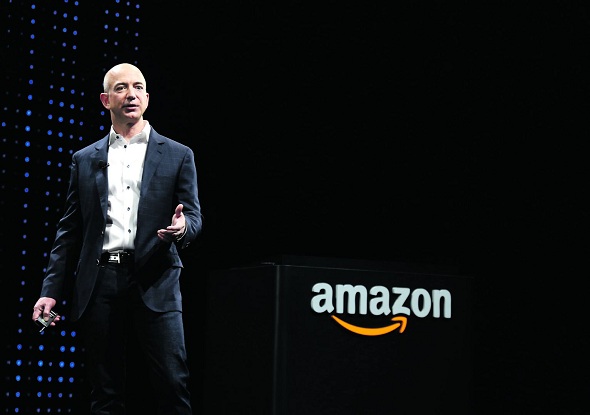
Critical Insights:
- Amazon secures the highest number of H-1B visas for the third consecutive year, intensifying demands for federal investigations.
- Critics argue positions filled through the visa program are no longer specialized and could readily be occupied by qualified American workers.
- Questions linger about potential wage suppression and displacement of American talent amid Amazon’s heavy reliance on H-1B workers.
By Samuel Lopez – USA Herald
Amazon.com, Inc. has again topped the list of companies securing H-1B visas, gaining approval for an astounding 11,000 visas. This marks the third consecutive year the e-commerce giant has dominated the program, sparking renewed scrutiny over potential abuses in visa usage.
Critics argue that Amazon exploits the broad interpretation of “specialty occupations,” leveraging the H-1B program to fill roles that could easily be occupied by American talent. These positions—including software development engineers, systems engineers, data scientists, database administrators, and cloud architects—have historically required highly specialized skills.
Yet, industry observers suggest these roles have evolved due to the rise of artificial intelligence and increased availability of tech-focused educational programs, which have expanded the domestic pool of qualified candidates, thus limiting the need for Amazon to seek overseas talent to fill these roles.
The H-1B visa program, initially designed to help U.S. companies address skills shortages by hiring specialized foreign workers, mandates positions require at least a bachelor’s degree or higher in specialized fields. However, critics contend that certain tech roles have become so mainstream and widespread that they no longer justify visa usage or classification as a “Specialized Field.”
Criticism has intensified against Amazon, highlighting concerns that the company’s prolific hiring of H-1B visa holders is displacing capable American workers, suppressing wages, and distorting the domestic labor market. These positions, particularly those within Amazon Web Services (AWS), the company’s lucrative cloud computing division, are now perceived as accessible to a broader U.S. workforce.
The stark contrast between Amazon and other tech giants further underscores these concerns. For instance, Tesla, Inc.secured fewer than 1,100 H-1B visas, representing merely 0.3% of total visa approvals in 2023. Tesla CEO Elon Musk, an outspoken proponent of the visa program, compares it to recruiting talented foreign players to strengthen an NBA team, yet Tesla’s significantly lower visa utilization raises questions about the necessity of Amazon’s high visa numbers.
Some contend it’s surprising that Amazon requires such a high number of visa approvals to facilitate package deliveries, especially when a company like SpaceX, which launches rockets into space, operates with significantly fewer.
Industry analysts highlight wage suppression as a central issue. Although the H-1B program mandates prevailing wage rates, persistent allegations suggest that companies are exploiting regulatory loopholes, potentially paying foreign workers less than their American counterparts and driving overall wages downward.
Amazon’s extensive recruitment of visa holders also prompts broader economic concerns. While global talent acquisition is vital for competitiveness, reliance on visa programs may discourage companies from investing in training and upskilling local talent, potentially weakening long-term workforce development in the U.S.
The debate over the interpretation of “specialty occupations” continues to polarize policymakers and industry leaders. Advocates argue that genuine skills gaps remain in cutting-edge technologies, justifying the recruitment of global talent. Conversely, critics highlight that tech roles have become more democratized due to widespread access to education and AI-driven training programs.
Growing pressure has led to increased calls for a federal investigation into Amazon’s hiring practices, with some legislators and advocacy groups urging regulators to thoroughly examine whether Amazon’s visa usage aligns with the program’s regulatory requirements.
Amazon’s controversial visa strategy has ignited a broader discussion about immigration policy, labor fairness, and corporate accountability, casting a spotlight on the integrity and future direction of America’s workforce management.
Fact-Check & Sources:


